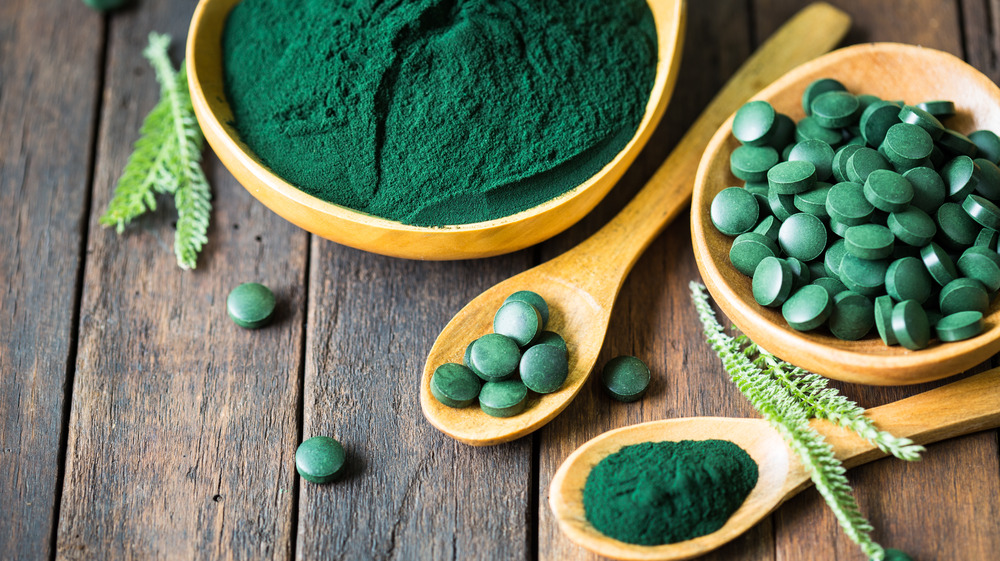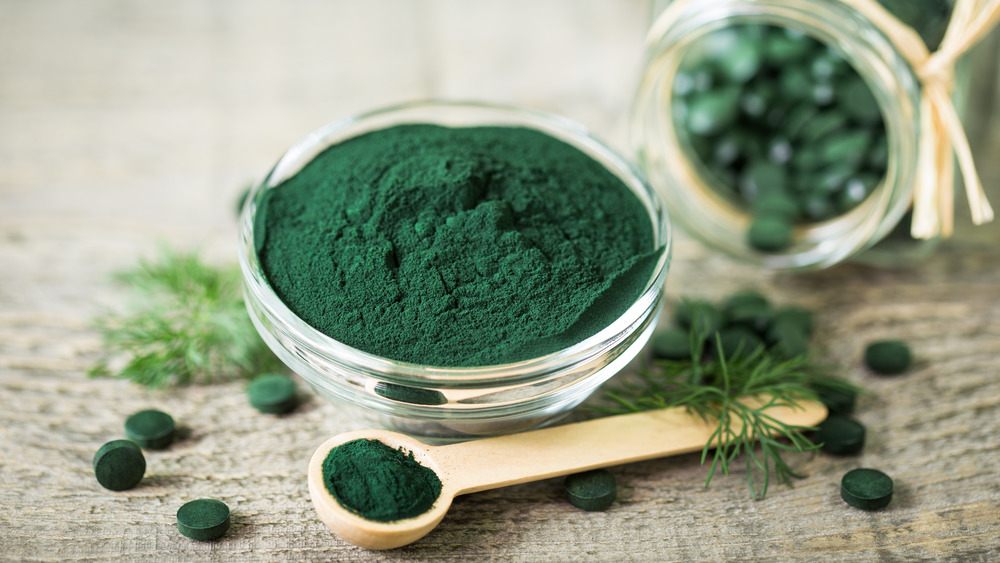Read This Before Adding Spirulina To Your Diet
In recent years, spirulina, a type of microalgae or "pond scum" that serves as a nutritional supplement in smoothies, has taken off in popularity. With it, an industry peddling a myriad of health benefits has blossomed, predictably. Business Insider, for example, lists how spirulina teems with vitamins and minerals, may lower blood pressure, acts as an anti-inflammatory agent, may alleviate allergies, and may help diabetes. All that from pond scum.
You can almost hear the weariness of the writer for Harvard Health Publishing addressing a question about the possible health benefits of spirulina. "An Internet search returns hundreds of suppliers from around the world promoting spirulina's supposed health benefits," they explain. The answer expands, saying that health professionals wouldn't be concerned if such peddlers stuck with observations that discussed spirulina's vitamin and protein content. However, these observations become claims that spirulina can "prevent, treat, or cure a number of conditions, including high cholesterol, hypertension, diabetes, depression, viral hepatitis, and malnutrition. Moreover, it's said to boost the immune system and improve kidney and liver function." None of this has been conclusively indicated by experimentation.
Additionally, as the BBC also reports, those with phenylketonuria should avoid spirulina as they wouldn't be able to metabolize the phenylalanine amino acid.
Spirulina may not be worth it, literally
Another common complaint leveled against spirulina is that if you're so desperate for a source of protein, you can find one for much cheaper. Quick and Dirty Tips notes that an ounce of spirulina will cost you from $1.50 to $3.00. For reference, at Walmart you could get a 108 ounce can of Bush's Low Sodium Black Beans, another good source of protein for vegetarians, for $5.98.
That's the explanation that registered dietitian Alissa Rumsey gave The Daily Beast. "There really isn't much risk with this," she shared. "It's just a cost-benefit analysis. Spirulina does have a lot of nutrients, but it isn't cheap and you can obtain protein and nutrients a lot easier and for less money from other sources."
In short, the spirulina market is currently in the midst of its over-hyped and over-priced period. Perhaps once the excitement boom is over and supply rises due to a larger number of farmers it may become a staple. For now, beans are just as good.

